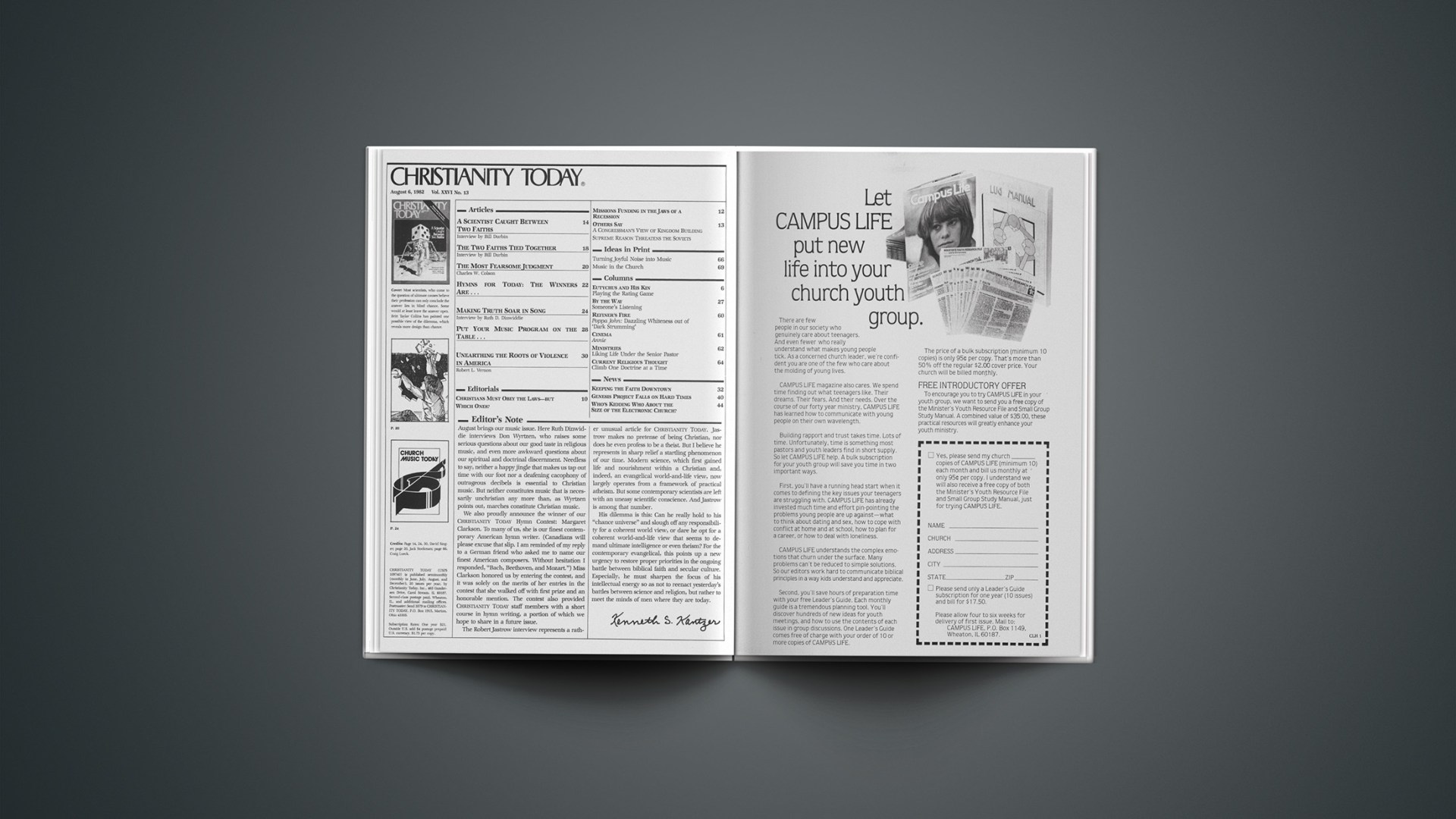August brings our music issue. Here Ruth Dinwiddie interviews Don Wyrtzen, who raises some serious questions about our good taste in religious music, and even more awkward questions about our spiritual and doctrinal discernment. Needless to say, neither a happy jingle that makes us tap out time with our foot nor a deafening cacophony of outrageous decibels is essential to Christian music. But neither constitutes music that is necessarily unchristian any more than, as Wyrtzen points out, marches constitute Christian music.
We also proudly announce the winner of our CHRISTIANITY TODAY Hymn Contest: Margaret Clarkson. To many of us, she is our finest contemporary American hymn writer. (Canadians will please excuse that slip. I am reminded of my reply to a German friend who asked me to name our finest American composers. Without hesitation I responded, “Bach, Beethoven, and Mozart.”) Miss Clarkson honored us by entering the contest, and it was solely on the merits of her entries in the contest that she walked off with first prize and an honorable mention. The contest also provided CHRISTIANITY TODAY staff members with a short course in hymn writing, a portion of which we hope to share in a future issue.
The Robert Jastrow interview represents a rather unusual article for CHRISTIANITY TODAY. Jastrow makes no pretense of being Christian, nor does he even profess to be a theist. But I believe he represents in sharp relief a startling phenomenon of our time. Modern science, which first gained life and nourishment within a Christian and, indeed, an evangelical world-and-life view, now largely operates from a framework of practical atheism. But some contemporary scientists are left with an uneasy scientific conscience. And Jastrow is among that number.
His dilemma is this: Can he really hold to his “chance universe” and slough off any responsibility for a coherent world view, or dare he opt for a coherent world-and-life view that seems to demand ultimate intelligence or even theism? For the contemporary evangelical, this points up a new urgency to restore proper priorities in the ongoing battle between biblical faith and secular culture. Especially, he must sharpen the focus of his intellectual energy so as not to reenact yesterday’s battles between science and religion, but rather to meet the minds of men where they are today.










